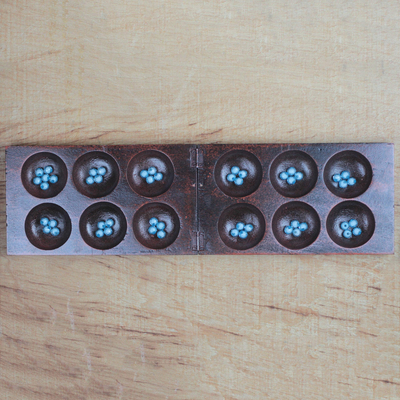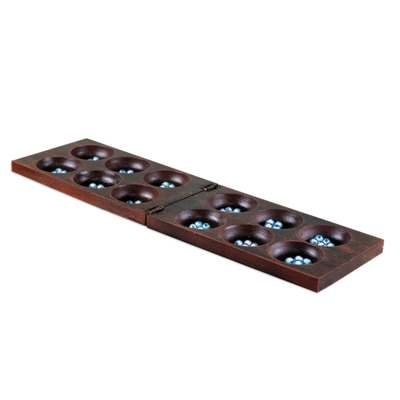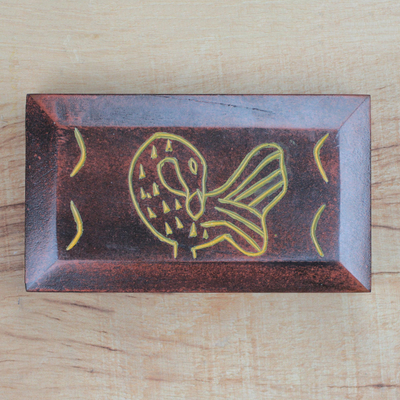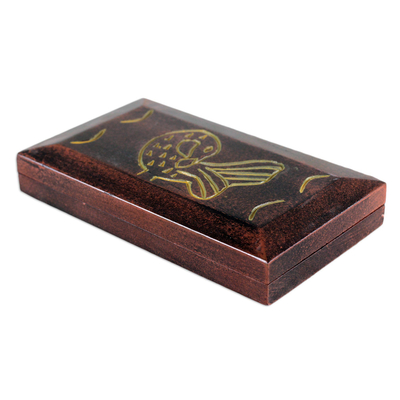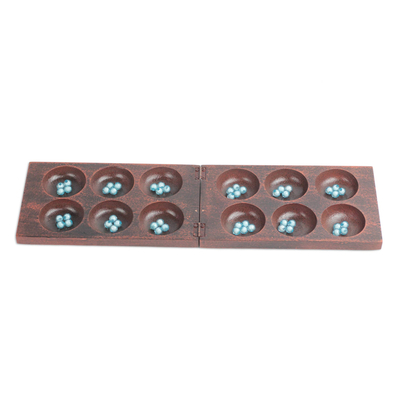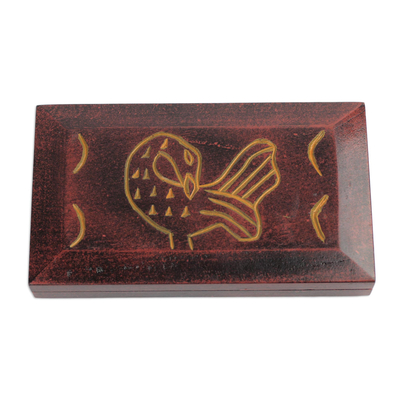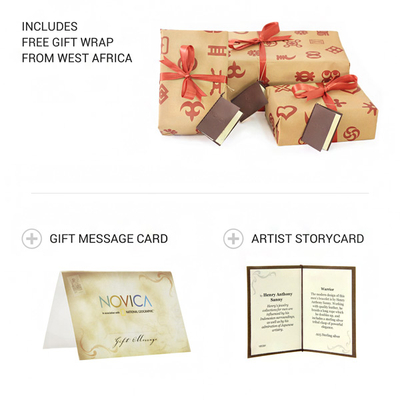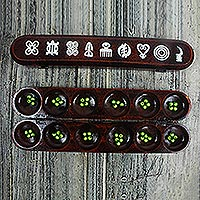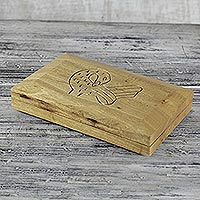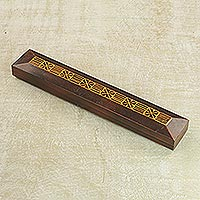Oware Mancala Table Game, "Sankofa"
 Coming Back!
Coming Back!
This item is available for backorder and will ship within 2 to 8 weeks. Read more
 Pre-Order Now!
Pre-Order Now!
This item is available for pre-order and will ship within 2 to 8 weeks. Read more
The rich tone of sese wood lends its eternal grace to this oware table game by Kofi Tall Agudoawu. A sankofa, or bird design, alights on the lid - its light tracery fluid and alluring. Equipped with recycled plastic playing pieces and a detailed manual, the game makes an excellent diversion for a rainy afternoon.
Oware is a game of skill and strategy designed for two players, challenging mental agility and alertness. The objective can be briefly described as "counting and capturing beads" and there are no chance factors involved. A player's strategy entirely depends upon reasoning and counting abilities.
Oware is one of the oldest games in the world. The earliest records describing the game were found in Arab religious texts dating to the Middle Ages, suggesting the game originated in the Middle East and spread from there to Africa, then to Asia with Arab traders, and to the Caribbean around 1640 via the African slave trade. Other experts place its origins in Central Africa; the Masai people state that oware was invented by Sindillo, the son of the first man, Maitoumbe, and was originally called geshe.
In Arab countries, the most common name for this game is mancala (Arabic word meaning "to move"). In some West African countries the depressions in the board are referred to as warri or wwari, which means houses, thus the name owari. In Nigeria it is known as adi, which is also the name of the seeds used to play it; and in South Africa it is called ohoro. With different and exotic names such as congklak, dakon, aggalacang and nogarata, it has also been played in Asia long before the Portuguese rounded the southern tip of Africa.
Today, oware represents the diversity of Africa, as some version of it is played in nearly every country on the continent. Legend relates that Shyaam aMbul aNgoong, founder of the Kuba kingdom of Central Africa, taught the game to his people to encourage foresight and calculation.
Having transcended the passing of the centuries, oware has been enjoyed as a family game, a ceremonial right of passage, or as a form of recreation among friends. It would be hard to find a greater challenge of mathematics, or a more attractive introduction to arithmetic.
- 0.87 kgs
- 1.9 lbs
- 5 cm H x 24 cm W x 15 cm D
- 2" H x 9.5" W x 6" D
Gift Info
- Email this item in advance of a gift.
- Email this item as a gift suggestion.
- Free Gift Wrap? Yes
- Premium Gift Wrap? Yes
Find Similar Items
Your Purchase Makes a Difference!
Cause Badges
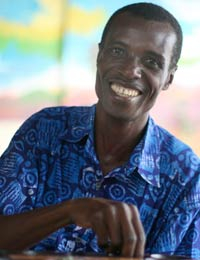
"Today I am developing new strategies to bring the world's oldest game to contemporary society."
Kofi Agudoawu, also known as Kofi "Tall" for his impressive height, is a master craftsman. His creative energies are currently being... read more

